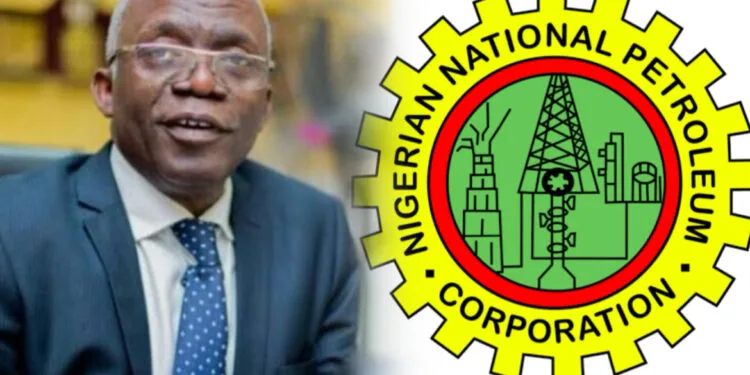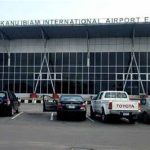Human rights lawyer, Femi Falana, has criticised the Nigerian National Petroleum Company Limited (NNPCL) for setting petroleum prices, arguing that the practice is illegal according to the law that governs the company. Falana made this claim in response to NNPCL’s recent announcement of new fuel prices, which he says go against the deregulated market principles outlined in the Petroleum Industry Act (PIA).
In a public statement, the Senior Advocate of Nigeria emphasised that the Petroleum Industry Act, specifically Section 205, makes it clear that fuel prices in Nigeria should be determined by market forces, not by the NNPCL or the government.
Join our WhatsApp Channel“The NNPCL lacks the power to fix the prices of petroleum products, as per the provisions of the Petroleum Industry Act,” Falana stated. “Prices must be dictated by the free market, not by arbitrary decisions from NNPCL or any other government agency.”
NNPCL’s Actions Contradict Market Deregulation
On September 5, 2024, Adedapo Segun, the Executive Vice President of Downstream NNPC Ltd, reiterated that Section 205 of the Petroleum Industry Act stipulates that petroleum prices are to be set by free market dynamics. According to Segun, “The market has been deregulated, meaning that petrol prices are determined by market forces rather than by NNPCL or the government. The exchange rate also plays a significant role in influencing these prices.”
However, Falana pointed out that despite these declarations, NNPCL recently fixed the prices of fuel refined by the Dangote Refinery, bypassing the market forces that should have determined those prices. He stated, “NNPCL’s decision to set prices goes against the very law that created it, violating the principles of market deregulation.”
Falana Calls NNPCL’s Price Fixing Illegal
Falana, who also heads a coalition of civil society organisations called the Alliance on Surviving COVID-19 and Beyond (ASCAB), further accused NNPCL of violating the PIA. He highlighted that the state oil company’s price-setting activities not only affect imported fuel but also domestically refined fuel, including the products from the Dangote Refinery.
“In a move that disregards the law, NNPCL once again set new pump prices for fuel refined by the Dangote Refinery,” Falana said. “This action is illegal, null, and void as it contravenes the Petroleum Industry Act’s Section 205, which states that market forces must determine fuel prices.”
READ ALSO: Nigerian Govt Permits Marketers To Lift Petrol Directly From Dangote Refinery, Bypassing NNPCL
Calls for Adherence to the Petroleum Industry Act
Falana urged the government and NNPCL to immediately comply with the PIA and cease any form of price control. “The government should stop interfering in petroleum pricing and allow market forces to function as intended under the Petroleum Industry Act,” he insisted.
He further stated that if the government or NNPCL continues to fix prices, it would lead to more economic hardship for Nigerians, as these prices are often set without considering the real dynamics of supply and demand in the marketplace.
“This illegal price fixing by NNPCL only adds to the suffering of citizens, as they are forced to pay for artificially inflated prices,” Falana said. “The people should not have to bear the cost of NNPCL’s disregard for the law.”
Implications for Nigeria’s Oil and Gas Sector
The Senior Advocate’s remarks have sparked conversations around the future of Nigeria’s oil and gas sector, particularly regarding the role of NNPCL in a deregulated market. Many industry stakeholders are concerned that the company’s continued involvement in price-setting undermines the very essence of market liberalisation, which is meant to promote competition and fair pricing.
Falana’s stance on NNPCL’s illegal price fixing highlights a growing concern among experts and civil society about the implementation of the Petroleum Industry Act. While the government has emphasized the need for market deregulation, NNPCL’s actions suggest a disconnect between policy and practice.
In conclusion, Falana’s challenge to NNPCL’s price-setting activities underscores the ongoing debates about the role of government agencies in Nigeria’s deregulated oil market. As the country grapples with economic challenges, ensuring adherence to the law is critical to creating a fair and competitive market that benefits consumers and producers alike.
NNPCL and the Law
Falana’s call for NNPCL to adhere to the provisions of the Petroleum Industry Act is a timely reminder that the legal framework governing Nigeria’s oil sector must be respected. As fuel prices continue to fluctuate, the need for transparent and market-driven pricing has never been more urgent. NNPCL, according to Falana, must step back from price-setting and allow market forces to prevail.
This ongoing controversy raises questions about how well the deregulated market is functioning in Nigeria and what steps are necessary to ensure that consumers are not unfairly burdened by government or corporate interventions.
Emmanuel Ochayi is a journalist. He is a graduate of the University of Lagos, School of first choice and the nations pride. Emmanuel is keen on exploring writing angles in different areas, including Business, climate change, politics, Education, and others.
- Emmanuel Ochayihttps://www.primebusiness.africa/author/ochayi/
- Emmanuel Ochayihttps://www.primebusiness.africa/author/ochayi/
- Emmanuel Ochayihttps://www.primebusiness.africa/author/ochayi/
- Emmanuel Ochayihttps://www.primebusiness.africa/author/ochayi/


















Follow Us